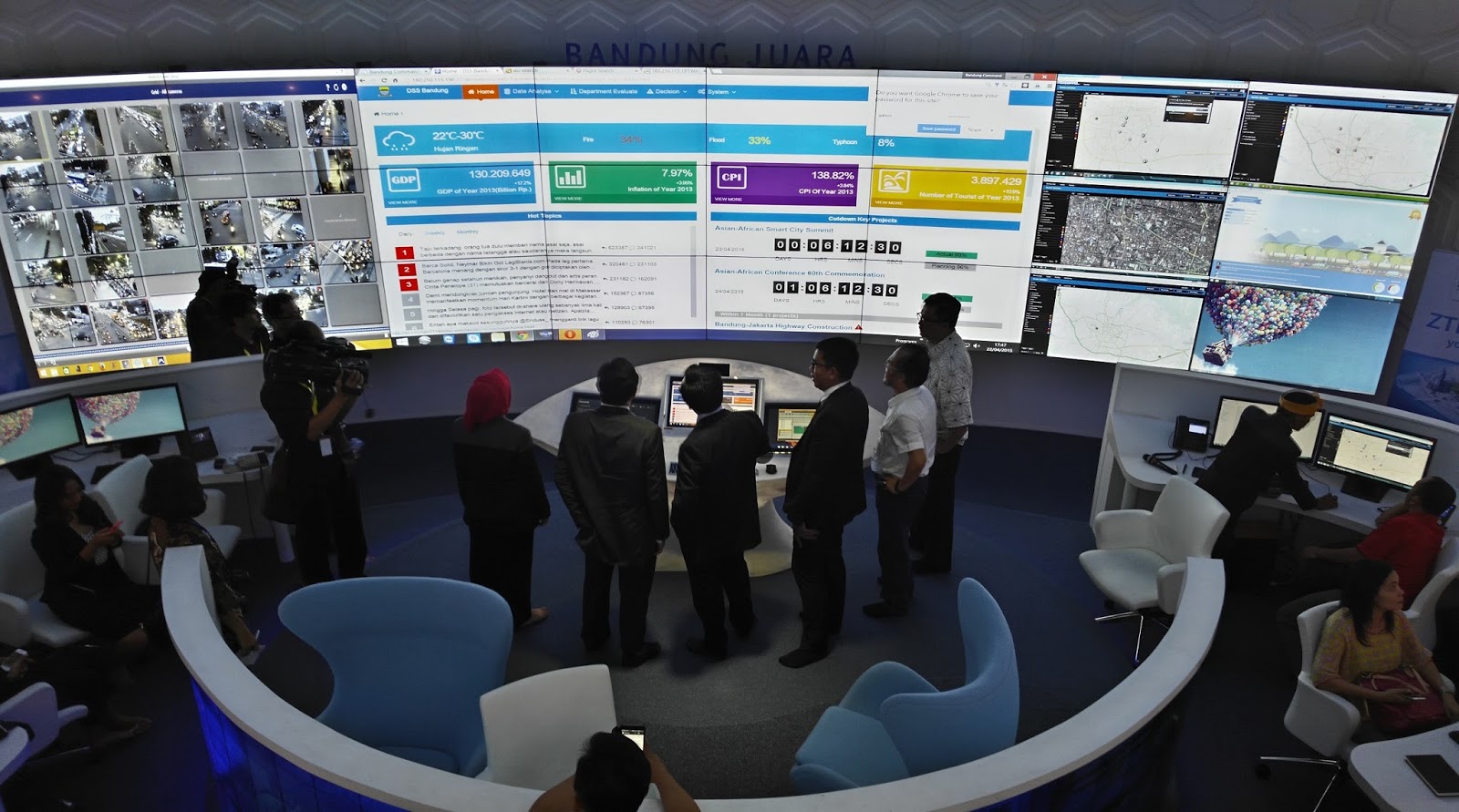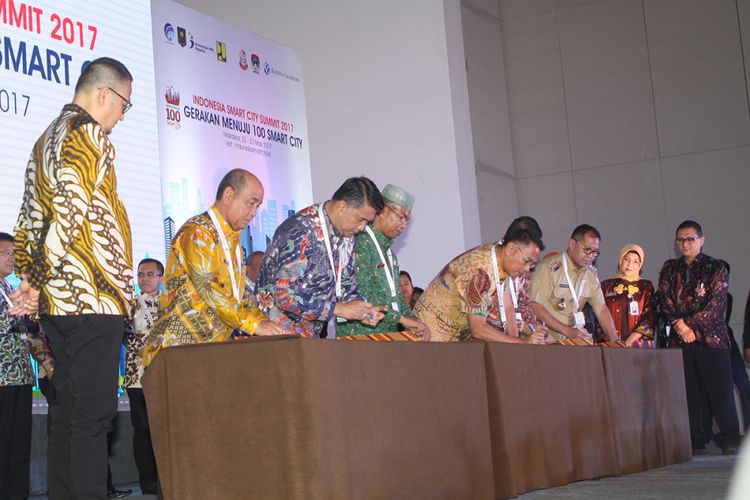Every local government in Indonesia is in a race to become the leading innovator of smart city technology, with Bandung's lavish command center to Jakarta's smart city initiative which breeds hundreds of technology-based startups.
Smart cities are a concept where cities or regional territories adopt the Internet of Things (IoT) and other Internet communications technology (ICT) to assist in the management of infrastructure.
Some examples of smart city technologies would be advanced transportation systems that can be centrally managed, integrated CCTV system, flood detection systems, and smart parking. For Indonesia, smart city technology provides citizens with a higher quality of living and a more transparent government.

Indonesia's Leading Smart Cities
Jakarta: Thanks to Jakarta Smart City Project, the Indonesia's capital is quickly become a popular hub for technology-based startups and companies, such as Trafi for transport apps and Qlue for citizens to channel their aspiration. With many other projects connected to the IoT, it's easy to see how other local governments wish to replicate Jakarta success.
Bandung: Bandung's Command center is the first has been implemented by many cities, including Jakarta. Programs such as E-budgeting gives a transparent view of administration spending. Smart CCTV and smart lighting have also been proposed by the administration. Professor Jason Pomeroy, an eco-architect, told The Jakarta Post, that Bandung is arguably Indonesia's leading smart city and typical example for medium-sized Asian cities.

Makassar: The jewel in Indonesia’s eastern region, dubbed "the home of Indonesian software." The city has been pushing to be Indonesia’s data center for the eastern region. Athough very new, the National Police (Polri) has praised Makassar for its Smart CCTV technology
100 Smart Cities by 2019
Smart cities are an asset for the government and citizens alike. This new wave of technology makes it easier for city management to identify and resolve issues, as well as to better plan improvements and additions. Citizens also reap benefits from more transparent and responsive government, lower taxes, and better services.
To achieve these ideals, several Indonesia's Ministries, Development Planning Agency, and Presidential Office initiated 100 Smart City project, starting with 25 cities and regencies selected to be in tis program.

To be part of this project, Ministry of Communication and Information will conduct assessment on city's readiness on regulations, human resources, and potentials, as well as assistance to plan the roadmap and implement smart city initiative. The country targets to develop 100 smart cities by 2019.
"Digital transformation does not only occur in the private sector, but also in government and society," said Director General of Informatics Ministry of Communication and Information Samuel Abrijani Pangerapan to Kompas.
Several companies have signed to sponsor this project, such as Siemens, Indosat Ooredoo Business, Lintasarta, and Kompas Gramedia.
Indonesia is just getting started with its smart city programs and has much more room to grow and improve over time.


















